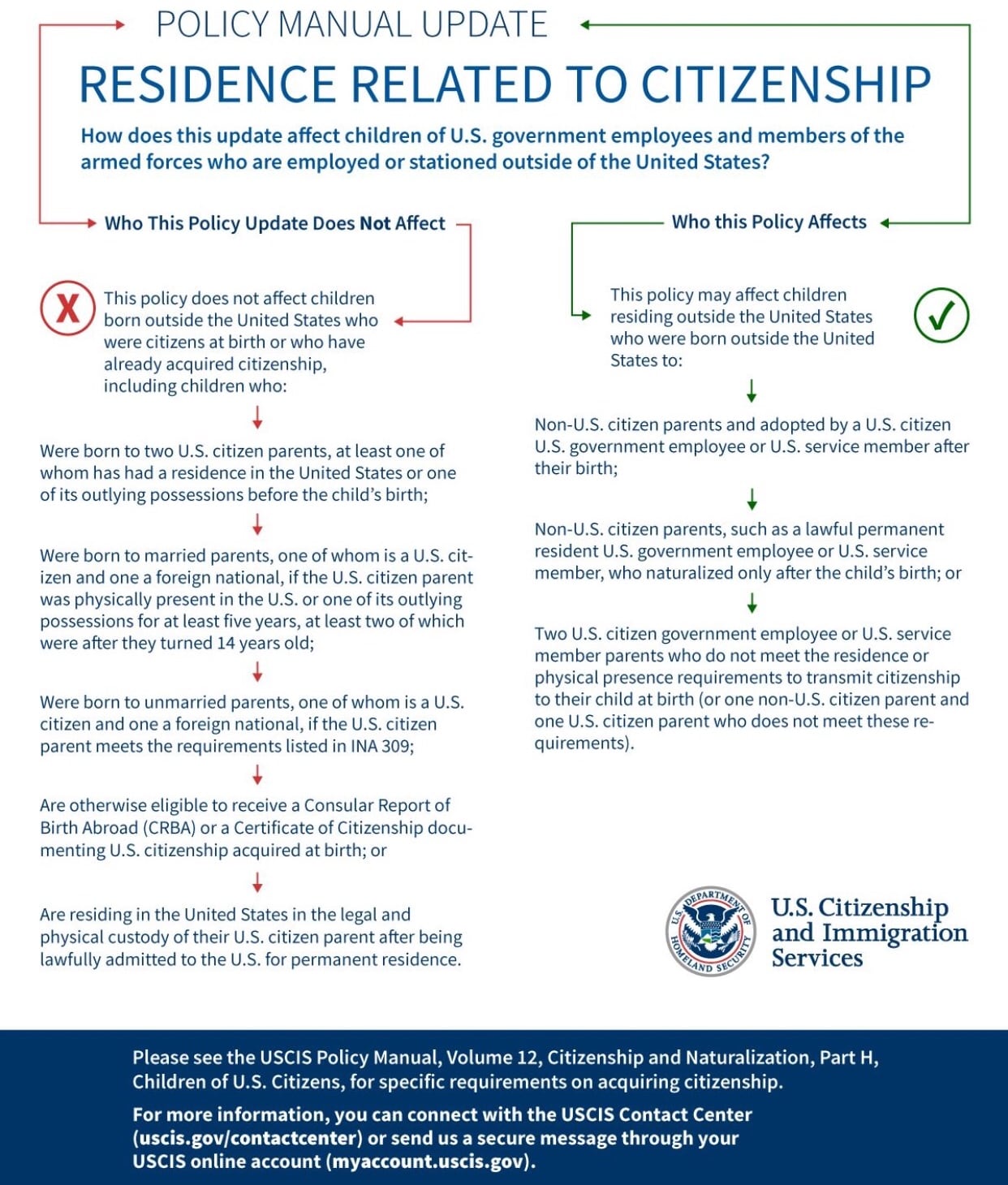In an effort to quell a roiling uproar over its new immigration policy, U.S. Citizenship and Immigration Services officials on Thursday said that only about two dozen military families would be affected.
A U.S. Citizenship and Immigration Services policy memo released Wednesday, going into effect on Oct. 29, sparked outcry from military families and lawmakers, who interpreted the change as potentially denying citizenship to all children of U.S. citizens born abroad, who have been and still are automatically considered U.S. citizens.
Officials clarified Thursday that, while the update creates a new hurdle for some military families to establish citizenship for their children born while they serve overseas, the change is expected to affect only a couple dozen families a year, based on their best estimates.
“The idea that this policy negatively impacts or takes anything away from them is incorrect,” an official said of service members. “It bears repeating that this affects a very small number of individuals, and they have another means of obtaining citizenship for their children.”

The change brings the agency in line with State Department policy, which requires an establishment of U.S. residency in order to issue a passport. Children born abroad to non-citizen parents ― including adoptions ― are not considered residents of the U.S., according to the State Department, and so were not able to get a U.S. passport.
Previously, USCIS had issued those children certificates of citizenship, as they had been considered U.S. residents if they were living with their natural or adoptive parents who were serving abroad on U.S. government orders.
“I think our policy interpretation is sound, but it isn’t what the law says,” the USCIS official said, and the State Department argued it had been following the letter of the law and the two needed to get on the same page.
Now, both agencies require an establishment of residence prior to granting citizenship or issuing a passport.
Based on citizenship applications received from overseas APO/FPO addresses over the past five years, he added, about 20 to 25 families a year find themselves in this situation.
“It’s the best data we have,” he said, adding that it doesn’t account for anyone who didn’t go ahead with the paperwork.
To clarify who is and isn’t affected by the policy:
- Children born overseas to at least one U.S. citizen parent are not affected. Though their parents will have to prove their own citizenship and U.S. residence in order to obtain a passport for a child, the child will be automatically considered a U.S. citizen and will not have to establish U.S. residence separately.
- Citizen service members who adopt a foreign-born child while abroad will have to file a form to establish legal permanent residency ― which is granted by virtue of their serving overseas on official orders ― with USCIS before they could receive a certificate of citizenship for the child.
- Service member green card holders who give birth abroad ― and, therefore, are not able to transmit citizenship to a child the way citizens are ― will have to file a form to establish legal permanent residency with USCIS.
Once that piece is completed, the official said, children of service members ― as an exception to policy, according to a USCIS official ― are able to complete the immigration process and take their oath while still living abroad.
RELATED

The official said USCIS had been working with the Defense Department to explain the update since May, though the Pentagon did not put out any communication to the force about the upcoming change.
“We coordinated very closely with DoD to try to message this as carefully as possible,” an official said. “It’s extremely difficult to explain all the technical details ... It’s easy to distort what’s actually happening here, which I think has happened in the last day or so. So I would point people to the messaging the DoD and we have put out there. That is the correct information.”
Following the uproar on Wednesday, a Pentagon spokeswoman told The Hill that further clarification from DoD was on its way.
“DoD has been working closely with our colleagues as DHS/USCIS regarding recent policy changes and understands the estimated impact of this particular change is small. However, we are committed to ensuring affected families are provided the appropriate information, resources, and support during this transition,” Air Force Lt. Col. Carla Gleason said.
Meghann Myers is the Pentagon bureau chief at Military Times. She covers operations, policy, personnel, leadership and other issues affecting service members.





